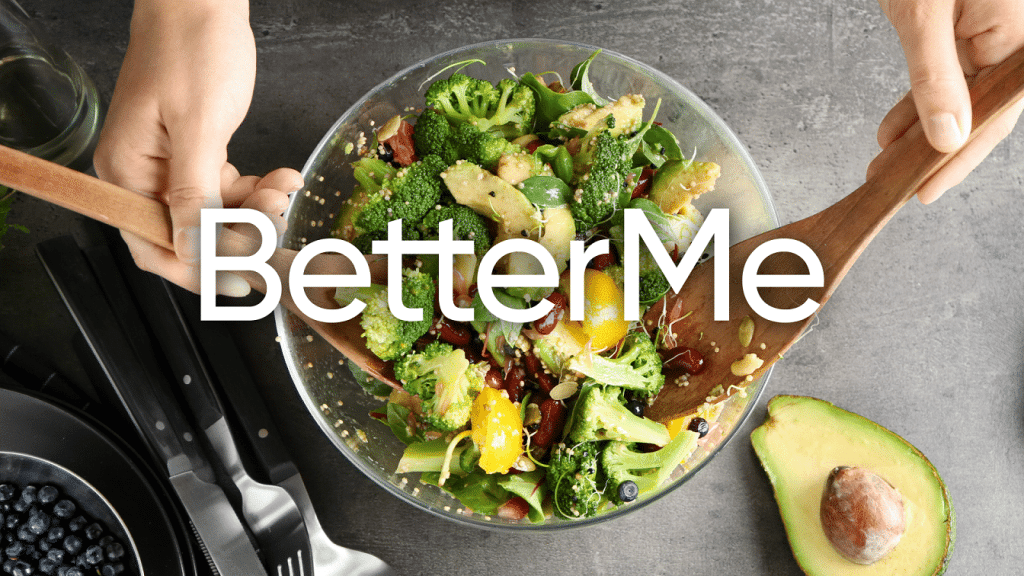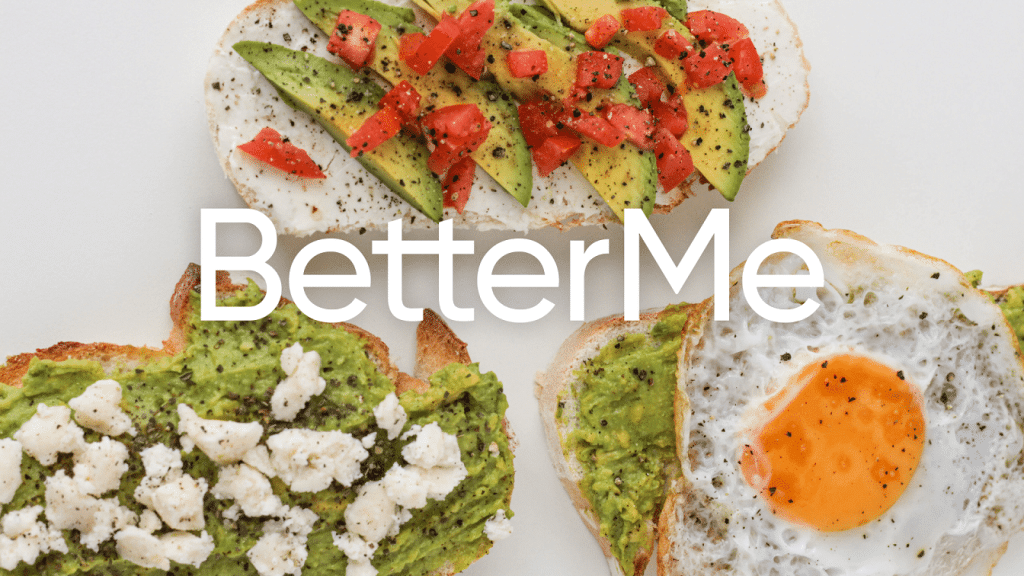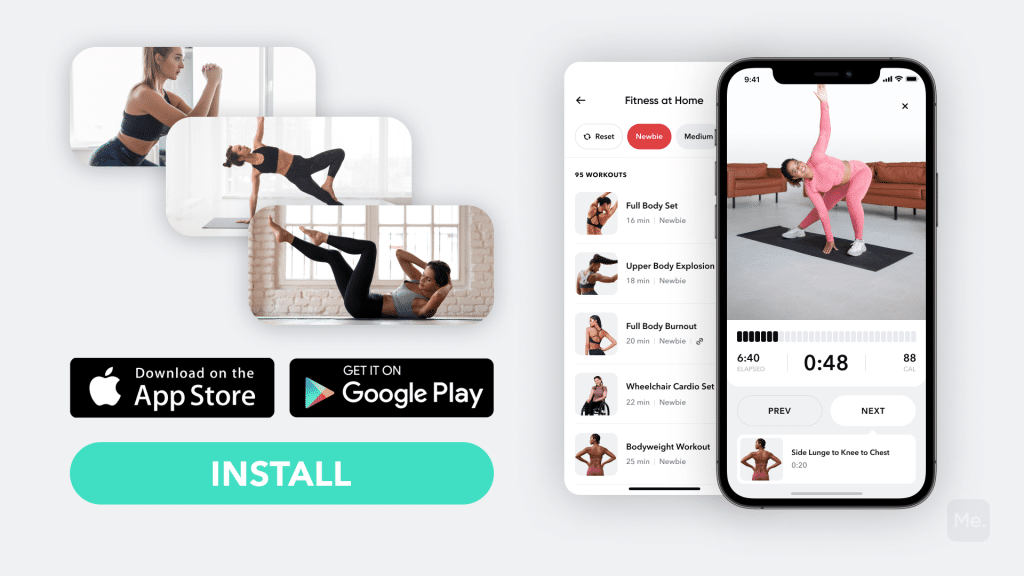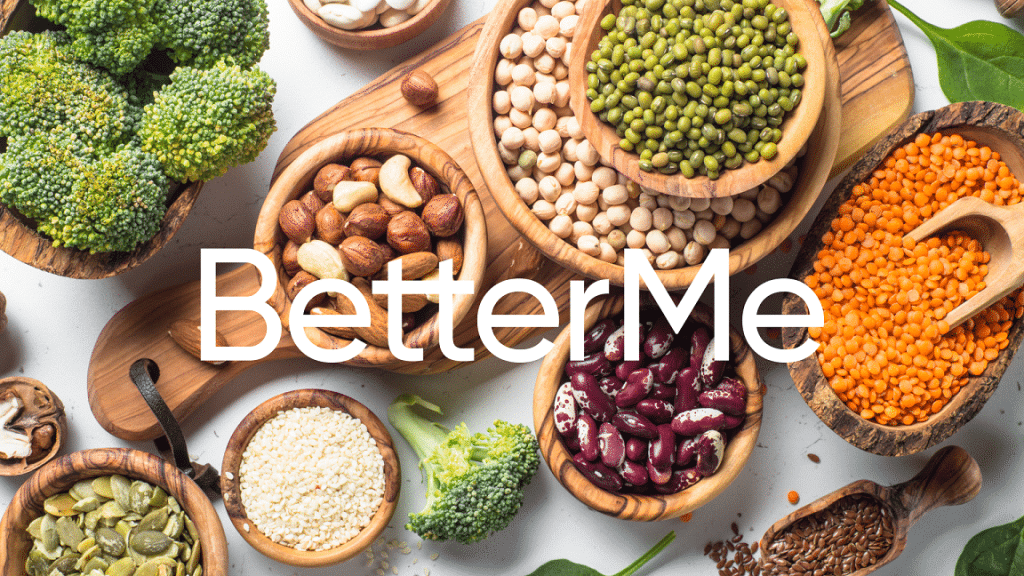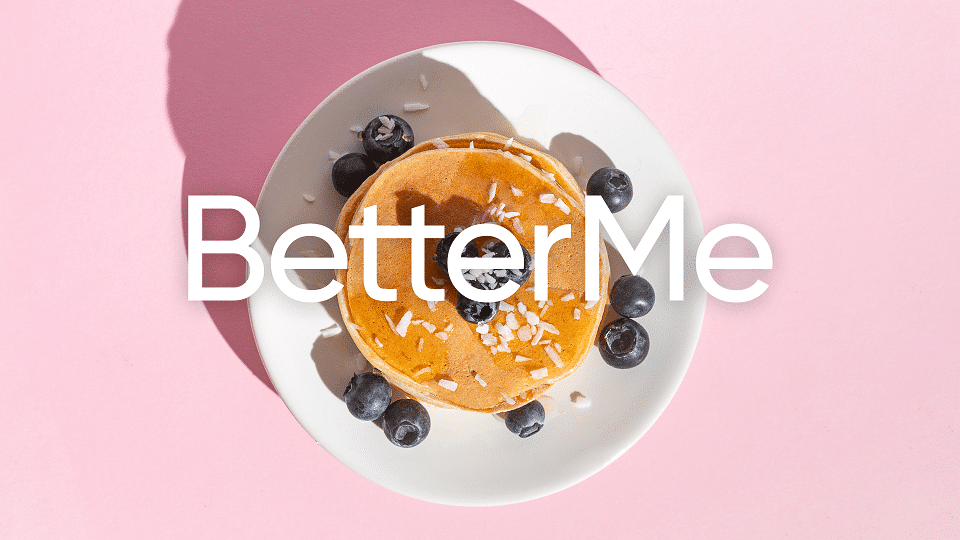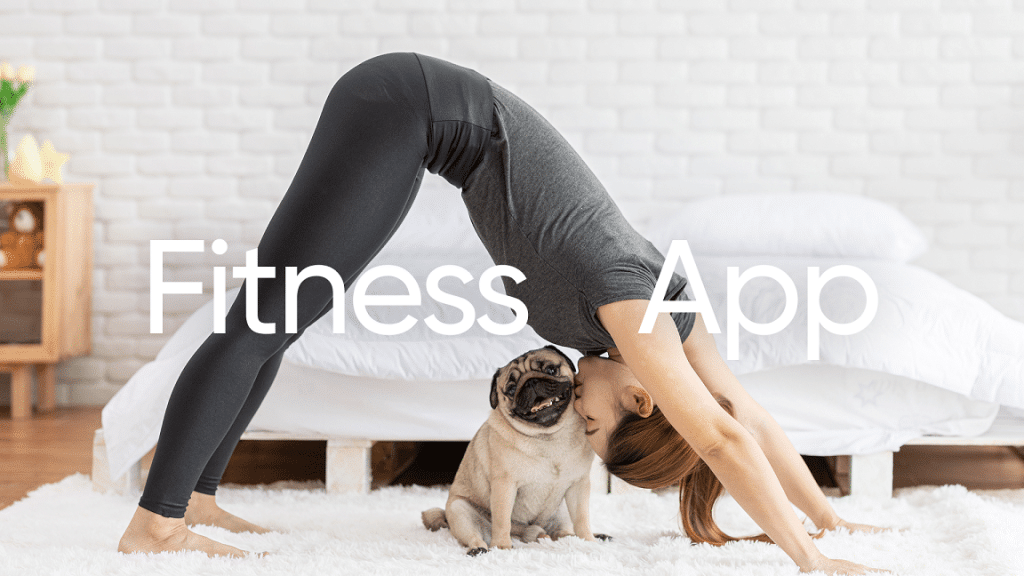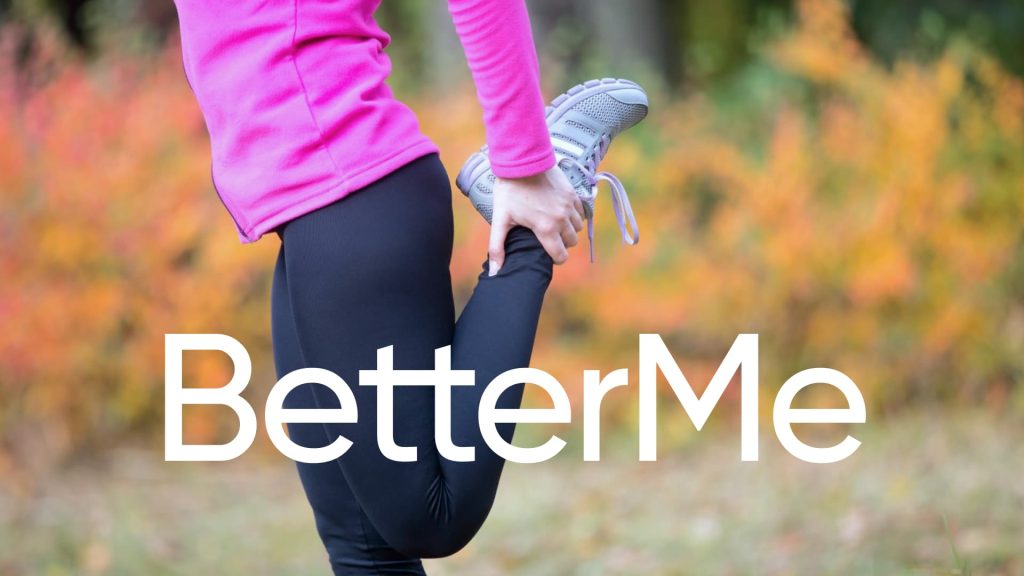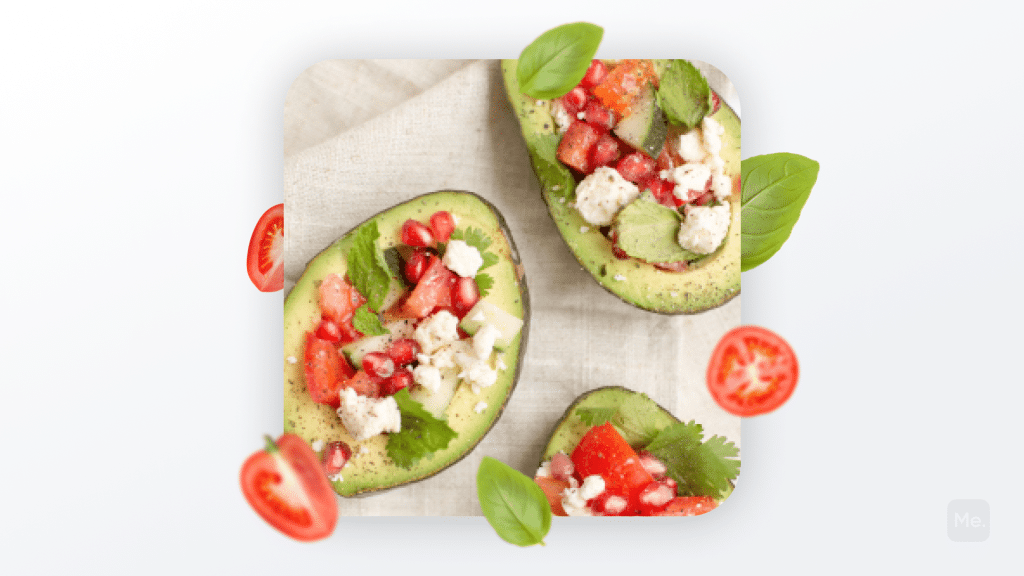No Matter What I Do I Can’t Lose Weight
No matter what I do I can’t lose weight! Is this thing that you constantly lament about when trying on clothes or talking to your friends? If so, you are not alone. Many of us have done a lot of research online and know what we need to do to shed those extra pounds. However, a lot of information online can be misleading.
Get your personalized
meal plan!
Here are some great tips regarding food, exercise and overall health that will not only help you lose weight, but will also shed light on why you might not be losing weight, what you might be doing wrong as well as tips on how to focus on health and wellness instead of the number on the scale.
The Best Tips On How To Lose Weight
Here are some great ways to lose weight naturally:
Get A Good Night’s Sleep
Research done in 2012 showed that insufficient or poor-quality sleep slows down your metabolism. When your metabolism is less effective, the body may store unused energy as fat (11).
Lack of sufficient sleep also leads to the overproduction of the hormone cortisol. This hormone, also known as the stress hormone, controls your mood, motivation, and fear (22). When cortisol is produced in excessive amounts within the body, it prompts fat storage, causing rapid weight gain (12).
Eat High Fiber Foods
Foods that are high in fiber help you feel food for longer and prevent snacking. When we chose to snack, most of us often chose sugary and fatty foods, which cause us to gain weight. To avoid this, opt for foods such as oats, whole grain bread, brown rice and pasta, and beans, peas, and lentils, which are very high in fiber.
Eat More Fresh Products
The best things about consuming fruits and vegetables is that they have a high fiber content and you can eat a lot of them without consuming many calories. (1). Two full plates of lettuce leaves have less calories than a plate of fries. At mealtime, ensure that 75% of your plate is covered with vegetables (or plant-based foods) and opt to snack on fruits.
Read More: Oatmeal Water For Weight Loss: Refresh Your Diet With This Delicious Drink
Control Your Gut Bacteria
Human beings have about 100 trillion bacteria cells in their gut. Some are good, and some are bad. Some bad types can increase the amount of energy that the person harvests from food, leading to fat deposition and weight gain.
To counter this, it is best to eat foods that increase the amount of good bacteria in your gut. Some of these foods include (9):
- Fermented foods such as kimchi, kefir, yogurt, tempeh, and miso enhance good bacteria’s function while inhibiting the growth of bad bacteria.
- Prebiotic foods such as onion, garlic, avocado, asparagus, oats, bananas, leeks, and barley. Prebiotics are dietary fibers consumed by gut bacteria.
Practice Mindful Eating
This means paying close attention to how and where you eat. Most people tend to eat while watching TV, working, or in the car, meaning that we do not pay attention to our food as we are distracted by one thing or the other.
Some mindful eating tips include
- Sitting down, preferably at a table to eat.
- Eat slowly by taking the time to chew and savor your meal
- Avoid watching TV, scrolling your phone, or working at your laptop during mealtime.
- Make wise food choices. Instead of opting for a quick snack that will keep you full for a short while, choose to have a fuller nutrient-dense meal that is guaranteed to keep you fuller for longer. Make sure to eat fiber-rich foods at every meal.
Betterme will keep you laser-focused on your weight loss journey! Nutrient-packed meal plans, fat-blasting workouts, galvanizing challenges and much more. Try using the app and see for yourself!
Do Not Skip Breakfast
Skipping this meal will not help you lose weight. It often leads to snacking throughout the day. Instead of this, always have your breakfast and opt to have some protein. Not only do proteins keep you fuller for longer, but they may also regulate appetite hormones to help you feel full. Protein-based breakfast options include chia pudding, lean meat, eggs, and oats.
Choose Lighter Salad Dressings
Most salad dressings, dips, and spreads normally carry a lot of extra calories since they are mostly made of fat. Instead of using something like mayonnaise, choose mustard, hummus, or salsa instead. Try to avoid store-bought salad dressings since they also have a high sugar content.
Portion Control
This is one of the best ‘how to lose weight’ advice that one can get. How much you eat is often a direct correlation of how much you weigh. You can instantly reduce your weight by reducing your plate’s size and using measuring cups when serving your food.
Drink More Water
Sometimes we tend to confuse hunger with thirst (2). Instead of taking a trip to the fridge, choose to hydrate first. If you are still hungry after that, have a healthy meal or snack.
Exercise More
The most common answer on how to lose weight is always to exercise more. However, you do not have to buy a gym membership straight away, start with something as simple as walking more. Increasing the number of steps you take a day helps in burning calories. If you burn more calories than you consume, then you will lose weight.
Best exercises to lose weight
Some essential and effective exercises to help you lose weight include (4):
Squats
They are fantastic for your glutes, hips, thighs, and calves.
- Stand with feet hip-width apart and toes facing straight ahead or angled slightly outward.
- Slowly bend the knees and squat, sending the hips back behind you while keeping your torso straight and abs pulled in tight.
- Don’t let your knees cave inward. Make sure they continue to track over your second and third toes as you lower yourself into a squat.
- Squat as low as you can, and push into your heels to stand up.
Kettlebell Swings
These are great for your core, glutes, hips, and quads.
- Bend at your hips and hold a kettlebell with both hands at arm’s length down in front of you.
- Rock back slightly and “hike” the kettlebell between your legs.
- Then squeeze your glutes, thrust your hips forward forcefully, and swing the weight to shoulder height.
- Reverse the move between your legs and repeat.
Read More: 100 Kettlebell Swings A Day Weight Loss: Putting Your Strength To The Test
Skipping
Skipping is a full-body workout. You use your shoulders and arms to turn the rope at a quick pace, while your legs and calves will be propelling your body upwards. If you keep your core engaged, your abs will get a workout too
- Grab the rope at both ends.
- Use your wrists to flick it round your body, jumping to clear the rope as it hits the ground.
Push-Ups
This is a compound exercise that works out your chest, shoulders, triceps, back, and abs.
- Get into a plank position. Your hands should be wider than your shoulders. Balance on the toes or the knees.
- Your body should be in a straight line from head to knees/heels.
- Slowly bend your arms and lower your body to the floor, keeping your neck straight and going all the way down until your chest touches the floor.
- Finish by pushing yourself back up to the full plank position.
Mountain Climbers
These are amazing exercises for your core and abs.
- Set up on the floor as though in a sprinter’s blocks, with one foot positioned beneath your waist and one back, with your leg straight.
- Explosively swap foot positions.
- Repeat.
What Is The Best Diet To Lose Weight?
When you search for the best diet to lose weight, the results are countless, which can be quite daunting making it almost impossible to pick just one. However, according to Harvard, low-fat and low-carb diets are among the best diets to shed unwanted pounds.
By reducing your daily calorie intake by 500 calories , and working out for 2 hours and 30 minutes each week, you may lose about 12 pounds a year (23). However, if you feel like you truly need to lose weight and believe that a specific diet would help, here are some of the highly ranked diets that you could try:
The Mayo Clinic Diet
This is defined as a long-term weight management program that helps you reshape your lifestyle by adopting healthy new habits and breaking unhealthy old ones. It also helps you lose weight and find a way of eating that you can sustain for a lifetime.
What to eat to lose weight on this diet includes whole-grain carbohydrates, lean sources of protein such as legumes, fish and low-fat dairy, and heart-healthy unsaturated fats. This diet also encourages portion control and physical activity to help burn calories (21).
The Mediterranean Diet
If you are not a fan of calorie counting, then this is the diet for you. It encourages you to always have freshly made foods, swap red meat for fish or poultry, and bad fats like butter for healthy options like olive oil. Low-fat dairy are also encouraged instead of fatter options like full-fat milk and 20% M.F. cheese which should be consumed with moderation. You can also have bread, only if made from whole grains, fats from nuts, olives, olive oil, and spices such as bay leaves, cilantro, coriander, rosemary, garlic, pepper, and cinnamon (3).
Vegetarian Diet
Vegetarianism means not eating meat, fish, and poultry since it excludes consumption of animal flesh. You can, however, consume dairy products and eggs. By eating lots of fruits, veggies, and whole grains – you are likely to feel full with smaller amounts of food than you are allowed each day. By eating less, this will put you on a calorie deficit, meaning that you will lose weight even without a lot of physical activity (27).
The Vegan Diet
Vegans eat fruits, vegetables, legumes, such as lentils, peas and beans, soy, almond, coconut, cashew, and oat milk, nuts and seeds, as well as olive oil and olives. On the other hand, they do not consume meat, poultry, and fish, dairy, mayonnaise, or honey. Veganism is a way of life that consists of not consuming any animal product.
Like vegetarians, vegans also tend to feel full on their plant-based diet on much less calories meaning that they too can be on a calorie deficit diet (26). When it comes to what to eat to lose weight remember that diets are not really what matters. Instead, focus on reducing your calories and focusing on foods like (18):
- Lean protein: eggs, cottage cheese, lean cuts of beef and pork, skinless chicken breast, tuna, and spinach.
- Fiber-rich foods: brown rice, plain popcorn, hummus, and whole wheat bread, among others.
- Fruits and vegetables like: asparagus, celery, beetroot, cucumber, kale, leafy greens, blueberries, grapefruit and broccoli.
You should also mind your portions, opt for low-calorie snacks, and avoid sugary drinks.
What Should I Stop Eating To Lose Weight?
Some foods and drinks that you should cut out of your diet include (24):
- Sugary drinks such as sodas, sports drinks, and fruit juices
- Cookies, pastries, and other baked goods as they are high in sugars and fructose.
- French fries, crackers, chips, and other fried foods are high in salt, calories, and unhealthy fats.
- White bread, pasta and rice are low in fiber and protein while incredibly high in calories and carbohydrates.
- Candy and energy bars, candied fruits, and sweetened yoghurt. They all contain added sugars and while yoghurt is marginally healthy, the rest are very high in calories.
- Alcohol. Alcoholic beverages are calorie-dense and generally high in sugar, but they contain little or no protein and fiber.
If you keep thinking no matter what I do I can’t lose weight, but you are eating the above foods regularly, then this is probably why your weight is not decreasing. While you do not have to go cold turkey on indulgent high-calorie and high-sugar foods, the best thing is to greatly reduce how much and how many times you eat them.
BetterMe app will kick you out of the mental funk, shake off your extra weight, rid you off you energy-zapping habits, and help you sculpt the body of your dreams. Intrigued? Hurry up and change your life for the better!
Why Many Women Can’t Reach Their Goal Weight
Sometimes, even when we eat right and workout, we still find it very hard to lose weight. As a woman, if you are wondering ‘why can’t I lose weight no matter what I do,’ here are some reasons why some women find it extremely hard to lose weight:
Your Mother’s Diet And Weight When She Was Pregnant
Sadly, the answer to ‘no matter what I do I can’t lose weight’ might lie in things that happened to you when you were a foetus. In 2010 research found that excessive weight gain during pregnancy could increase birth weight and the offspring’s risk of obesity later in life (20). Later in 2016, research done on rats showed that a western diet by a mother during pregnancy, could lead to a slower metabolism, overeating, and a higher chance of obesity in their offspring (14).
Dieting
While dieting is known for helping many people lose weight, people tend to gain all the lost weight, if not more, after they stop dieting. Low-calorie diets often result in weight gain because of over-compensatory overeating during lapses. Going on and off your diets tells your body that food supply is often insufficient.
Your body will then start storing more fat than usual, just in case food supply decreases again (6). Yo-yo dieting may also cause an immune response in fat tissue that makes fat loss more difficult (5).
Lipedema
This is a hormonal and hereditary disorder characterized by symmetric enlargement of the legs from the glutes to the ankles due to deposits of fat beneath the skin. It occurs during puberty, pregnancy, or menopause. The disorder may also progress affecting the chest, torso, abdomen, and upper extremities (13).
Hypothyroidism (Underactive Thyroid)
When you have hypothyroidism, your thyroid gland does not produce enough of certain crucial hormones. This causes weight gain, obesity as it slows your metabolism. It also causes joint pain, infertility, and heart disease (10).
PCOS – Polycystic Ovary Syndrome
PCOS is a hormonal disorder common among women of reproductive age and it is among the reasons why many women can’t reach their goal weight. The disorder may cause infrequent or prolonged menstrual periods or excess male hormone (androgen) levels in women (15). High androgen levels lead to symptoms such as body hair growth, acne, irregular periods, and weight gain. This extra weight usually settles in the abdomen, where men tend to carry weight (16).
Our society tends to focus more on looks rather than health in matters of weight. Remember that what you see in the mirror does not define who you are or your worth. Being overweight does not mean that you do not care, are lazy or greedy. There are many reasons why someone can be heavy, and not all of them are related to food.
Read More: How To Lose Weight With PCOS: 5 Easy Dietary Tweaks
Why And How To Focus On Health Not Weight Loss
Focusing just on weight loss can lead to cycles of losing and regaining weight, lower self-esteem, and a preoccupation with food and body image factors, all of which are bad for your mental health.
1. Step Off The Scale
Weight loss is largely centered around numbers. If you wake up one day and see that you have added a pound or two, chances are that this will ruin your whole day. Get rid of your bathroom scale and preserve your mental health.
2. Resolve To Change Daily Behaviors
We all know what foods tend to make us gain weight, but we tend to consume them since they are fast, convenient and sweeter than healthy foods. Instead of ordering that pizza or getting something from Uber eats, opt to make food at home. You are bound to use less sugar and fats, thus cutting down on calories consumed.
3. Do More Physical Activities
This is not just for your weight loss. Exercise has been shown to lower the risk of type 2 diabetes, heart disease, and some types of cancer. Also, the more you work out, the stronger you get. Who would not like to get stronger?
4. Have Measurable Goals
This is not in terms of your weight. If you are overweight and go in for a physical, your cholesterol, blood sugar, and blood pressure levels are high. Instead of eating to hit a certain number on the scale, aim to improve your habits to regulate these numbers.
5. Aim For Functional Goals
While weight loss, when done right, takes a long period of time, which may demotivate you, look at small goals as your wins. Working out can improve your mood, give you more energy, and even relax you (for example, yoga). These are small goals that are easily are quickly achievable through one workout session.
Once you focus on health not weight loss, the stress of ‘no matter what I do I can’t lose weight’ will be long gone, leaving you to enjoy healthy food, working out, and life in general in a more carefree way.
The Bottom Line
The answer to no matter what I do I can’t lose weight lies in many factors. It may relate to your eating habits, exercise routines or even health issues that you have no control over. Instead of focusing on the number on the scale, our advice is to focus on wellness.
Change your eating habits, not for weight, but to lower your cholesterol. Exercise so you may become stronger and healthier not so that you may fit into a pair of jeans. Use the above examples of diets, healthy food, and workouts to change your mindset from not losing weight to overall wellness.
If you choose to change your diet or start working out, please first consult your doctor or nutritionist, especially if you have any underlying illnesses.
FAQs
Do I Eat Too Close To Bedtime?
If you believe that no matter what you do, you can’t lose weight because you might be eating too close to bedtime might be affecting your weight loss, this might not be true. What you eat at night matters more than when you eat it. Calorie-dense foods before bed could make you gain weight as compared to low-calorie snacks at bedtime (17). Instead of eating a big meal at night, opt to eat healthy, balanced meals and snacks throughout the day.
Is It Because I’m Under Too Much Stress?
It might be. Stress and weight gain is not something new. More often than not, stress causes us to overeat and make poor and unhealthy food choices. When we are stressed, we can trigger glucocorticoids and progenitor cells, which can lead to weight (25). Increased levels of Cortisol, aka the stress hormone, cause higher insulin levels and drop blood sugar levels making you crave sugary, fatty foods (7).
Do I Burn Calories More Slowly Than Other People?
Metabolism is the process by which your body converts what you eat and drink into energy. This biochemical process combines calories with oxygen to release the energy your body needs to function. If your metabolism is high or fast, you will burn more calories at rest and during activity. A high metabolism means you’ll need to take in more calories to maintain your weight (8).
Some ways that you can tell if you have a slow metabolism include (19)
- Weight gain
- Difficulty in losing weight
- Frequent headaches
- Dry skin
- Hair loss, among others
DISCLAIMER:
This article is intended for general informational purposes only and does not address individual circumstances. It is not a substitute for professional advice or help and should not be relied on to make decisions of any kind. A licensed physician should be consulted for diagnosis and treatment of any medical conditions. Any action you take upon the information presented in this article is strictly at your own risk and responsibility!
SOURCES:
- 10 Ways to Lose Weight Without Dieting (2007, webmd.com)
- 12 tips to help you lose weight (2019, nhs.uk)
- 12 Reasons to Love the Mediterranean Diet (2019, webmd.com)
- 25 of the Best Exercises to Lose Weight, Backed by Research and Science (2019, menshealth.com)
- A possible secondary immune response in adipose tissue during weight cycling: The ups and downs of yo-yo dieting (2014, pubmed.ncbi.nlm.nih.gov)
- An adaptive response to uncertainty can lead to weight gain during dieting attempts (2016, pubmed.ncbi.nlm.nih.gov)
- Can Stress Cause Weight Gain? (2016, webmd.com)
- Does Metabolism Matter in Weight Loss? (2015, health.harvard.edu)
- How to naturally lose weight fast (2018, medicalnewstoday.com)
- Hypothyroidism (underactive thyroid) (2020, mayoclinic.org)
- Implications of Sleep Restriction and Recovery on Metabolic Outcomes (2012, ncbi.nlm.nih.gov)
- Influence of Sleep Deprivation and Circadian Misalignment on Cortisol, Inflammatory Markers, and Cytokine Balance (2015, ncbi.nlm.nih.gov)
- Lipedema (2016, rarediseases.info.nih.gov)
- Maternal Western diet increases adiposity even in male offspring of obesity-resistant rat dams: early endocrine risk markers (2016, pubmed.ncbi.nlm.nih.gov)
- Polycystic ovary syndrome (PCOS) (2017, mayoclinic.org)
- Polycystic Ovary Syndrome (PCOS) and Weight Gain (2018, webmd.com)
- Risks of Eating Before Bed (n’d, livestrong.com)
- Smart Foods to Eat When You’re Trying to Lose Weight (2020, verywellfit.com)
- Ten signs you have a slow metabolism (2017, msn.com)
- The association between pregnancy weight gain and birthweight: a within-family comparison (2010, pubmed.ncbi.nlm.nih.gov)
- The Mayo Clinic Diet: A weight-loss program for life (2019, mayoclinic.org)
- What Is Cortisol? (2018, webmd.com)
- Which diet is best for long-term weight loss? (2018, health.harvard.edu)
- Which foods to avoid when trying to lose weight (2019, medicalnewstoday.com)
- Why does stress lead to weight gain? Study sheds light (2018, medicalnewstoday.com)
- Vegan Diet (n,d, health.usnews.com)
- Vegetarian Diet (n.d, health.usnews.com)


